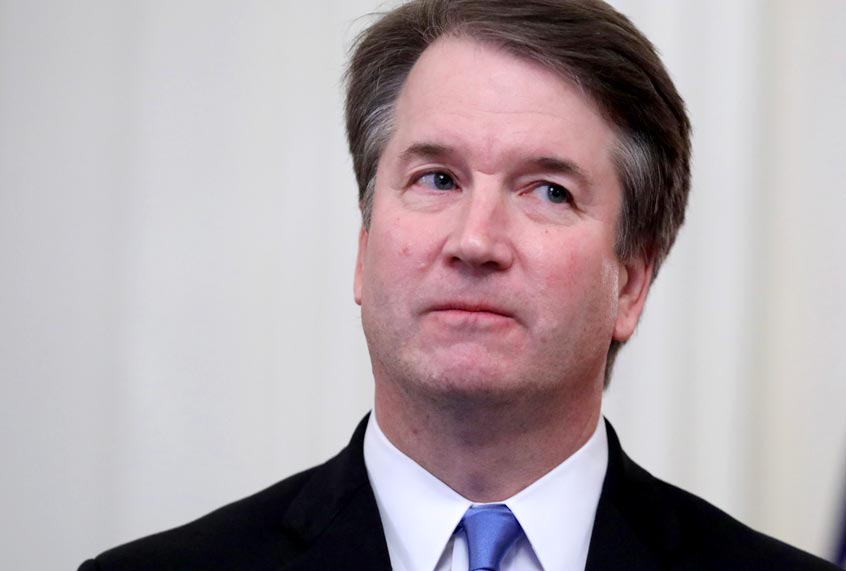Justice Brett Kavanaugh seemed to take an uncharacteristically liberal stance when hearing an important case involving prosecutorial racism this week.
Kavanaugh and some of his conservative colleagues on the bench were highly critical of a Mississippi prosecutor accused of striking black jurors from a case involving an African American accused of murder, according to ThinkProgress. The case, Flowers v. Mississippi, involves the accused murderer Curtis Flowers challenging the fact that District Attorney Doug Evans has tried him six times for the same murder, even though Mississippi courts have twice deemed his attempts to exclude black jurors as unconstitutional.
Kavanaugh voiced his objections to Evans’ conduct by pointing out that he had struck 41 of the 42 African-American jurors that he had the opportunity to remove from the case during the many trials that occurred. The judge expressed concern that this meant Evans was applying a “stereotype” to the black jurors involving their potential sympathies for an African-American defendant.
Similarly, Justice Samuel Alito argued that, although Evans’ decision to remove five jurors from the latest case could have passed muster if the prosecutor didn’t have a long history of racism, Alito found Evans’ history to be “troubling” and a “cause for concern.”
The two conservative justices voiced similar concerns to those expressed by the bench’s more liberal justices. As the Washington Post reported, Justice Sonia Sotomayor called out Evans’ “passion” for prosecuting Flowers while Justice Elena Kagan said the difference in how Evans questioned white potential jurors and black potential jurors was “staggering.”
“Kavanaugh is interesting. He’s a little bit of a wild card,” Washington University law professor Dan Epps told APM Reports about the judge’s position regarding Flowers v. Mississippi. “He’s starting off from a baseline of being pretty conservative, but maybe slightly less conservative on criminal justice issues. I’ve looked at some of his opinions more generally in criminal justice and he’s not always a reflexive vote in favor of the state.”
He added that Kavanaugh “might be more conservative on some things, less conservative on other things, but maybe a little bit less rigid ideologically than [Justice Neil] Gorsuch.” He also pointed out that Kavanaugh is “someone who cares a lot about his reputation for fairness and being open-minded, and he was friends with people on both sides of the aisle. I mean, he went through this confirmation process where he acted partisan, but he cares about his reputation. And he might be looking for opportunities to not look like a partisan.”
Kavanaugh wasn’t the only conservative judge to surprise Supreme Court-watchers with a seemingly uncharacteristic liberal ruling.
The other judge appointed to America’s most powerful bench by President Donald Trump, Neil Gorsuch, reinforced his longstanding habit of supporting Native American rights on Tuesday by siding with the liberal judges, according to NPR. In that decision Gorsuch sided with the Yakama Tribe to travel on public roads without being taxed on any goods that they bring to their reservation, arguing that the Yakamas knew that their land was “worth far more than an abject promise they would not be made prisoners on their reservations,” that the government was going to seize it and that in order to protect their interests they had to “extract from the negotiations the simple right to take their goods freely to and from market on the public highways.”


